It’s common for couples who are going through fertility issues not to want to talk openly about it. This makes total sense, as it’s a very personal and tough thing to bring up in a casual conversation. But keeping it a secret from loved ones can put distance between them, cause misunderstandings, and even result in hurt feelings.
This story had it all—a couple who kept their IVF journey from their mother-in-law was recently confronted by her after she found out about it. They were appalled that their boundaries were disrespected this way, so the husband forbade his spouse’s mom from visiting them again.
Fertility issues are among the hardest topics to talk about

Image credits: halfpoint (not the actual image)
So this couple decided to keep theirs private until MIL found out about it by digging through their trash
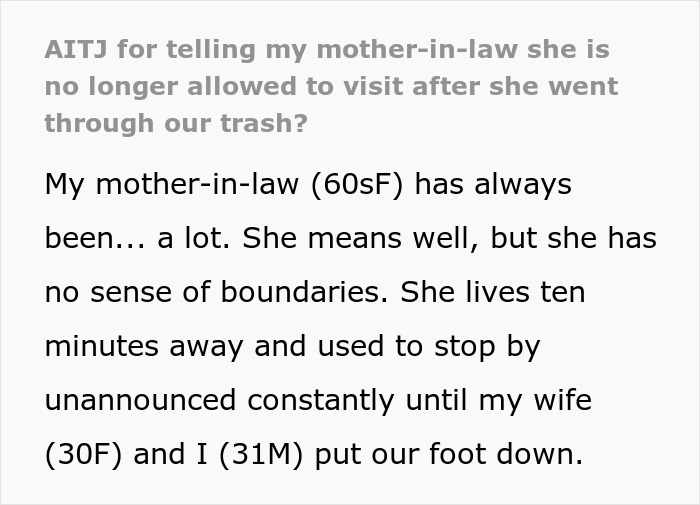
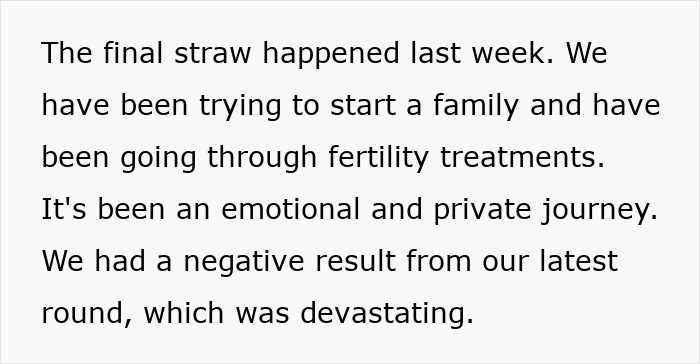


Image credits: prostock-studio (not the actual image)
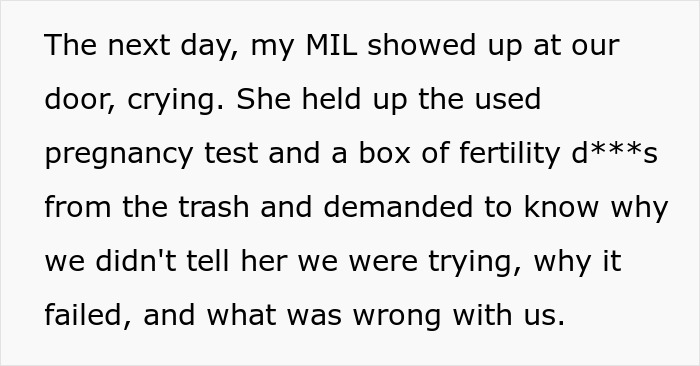


Image credits: Timur Weber (not the actual image)

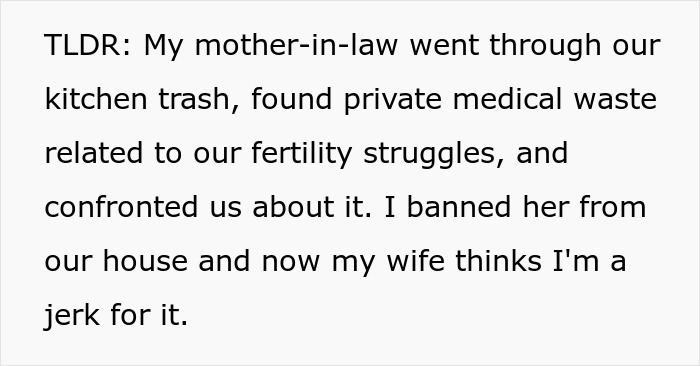
Image credits: SlyGlimpse
Fertility issues can take a toll on mental health, something couples tend to keep private
Around 1 in 7 couples can’t grow their family naturally, and if they decide to seek out medical help, the journey is rarely easy. Sharing and talking about it might be even harder, as there’s still a lot of stigma and judgment surrounding infertility and its treatments.
Couples who have infertility issues may feel ‘less than’ due to it, which can have a profound effect on their mental health, further deterring them from talking about it.
“Infertility often ushers in a profound emotional journey that is marked by feelings of loss, inadequacy, and isolation,” said Becca Reed, LCSW, PMH-C, perinatal mental health and trauma therapist. “These experiences can strain even the strongest relationships, affecting communication and emotional intimacy.”
Experiencing infertility is hard enough as it is, but seeking treatment for it can be even tougher. It takes a major toll on mental health—studies have shown that fertility patients can experience the same levels of anxiety and depression as patients diagnosed with cancer.
“The emotional and psychological effects of infertility are deep and often misunderstood by anyone who has not experienced navigating infertility,” says therapist Rachel Goldberg, LMFT. “There is a range of emotions that individuals may experience, including grief, sadness, anger, guilt, shame, and anxiety.”

Image credits: EugenePetrunin (not the actual image)
Keeping fertility issues a complete secret might not be the best way to go
Bottling up all of these experiences and emotions can put a lot of stress and pressure on the couple, further making their well-being worse.
According to fertility specialist and researcher Dr. Alice Domar, “The majority of infertile women do not share their story with family or friends, thus increasing their psychological vulnerability, [causing] feelings of shame, guilt, and low self-esteem.”
Therefore, experts encourage couples with infertility not to keep their journey a complete secret from their loved ones.
“When counseling infertility patients, I often suggest that they tell a simple truth. Not the whole truth. Not nothing but the truth. Less is more when it comes to talking about infertility,” said Ellen S. Glazer, LICSW, a clinical social worker.
“Couples can think through what they want others to know. In most instances, it is simply that they want children, are having trouble making that happen, and are receiving good medical care. They want others to respect their privacy and to simply stay tuned, knowing that when there is good news to be shared, they will joyfully share it. Specifics of diagnosis, types, and timing of treatments are usually too much information,” she further explained.
Keeping privacy during infertility struggles is possible without keeping loved ones completely in the dark and risking distancing themselves from them or causing misunderstandings that hinder relationships. A couple can greatly benefit from accepting support from loved ones that they’re comfortable with, while at the same time establishing their boundaries and having their privacy.

Image credits: freepik (not the actual image)
Many people justified husband’s behavior and even suggested he has a ‘wife problem’








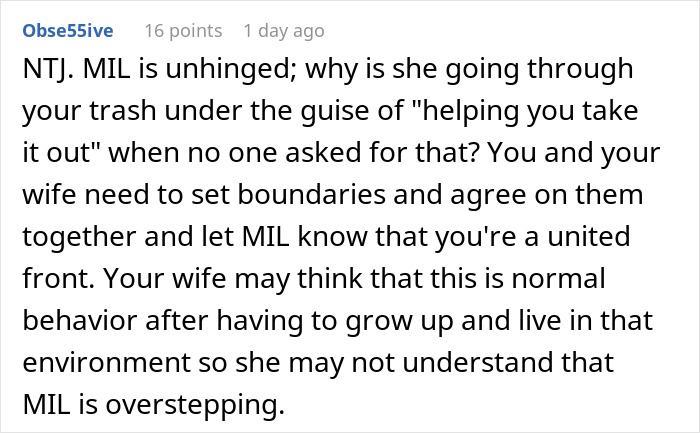

























 Follow Us
Follow Us





